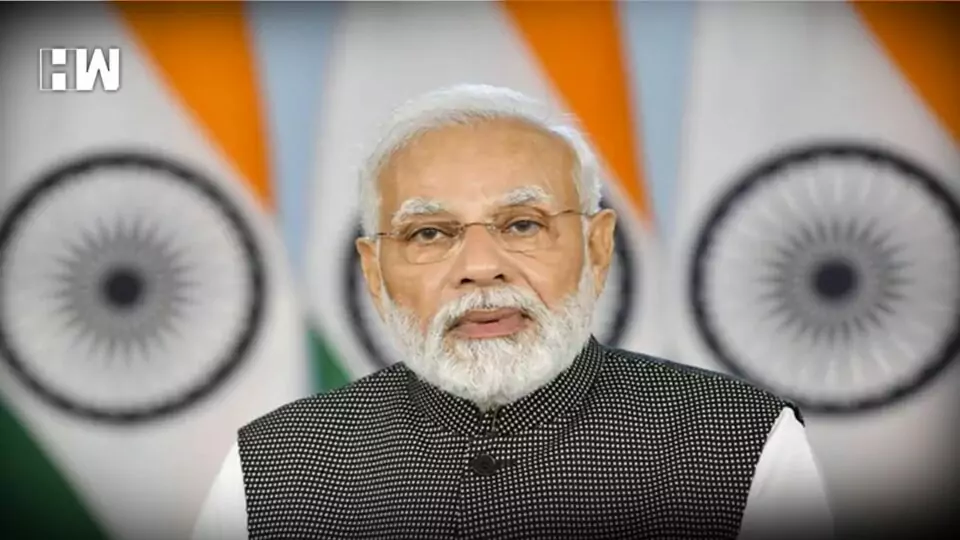Prime Minister Narendra Modi on Thursday paid homage to Sardar Vallabhbhai Patel on his 72nd death anniversary and recalled the everlasting contribution of the ‘Iron Man’ to India
New Delhi: Prime Minister Narendra Modi on Thursday paid homage to Sardar Vallabhbhai Patel on his 72nd death anniversary and recalled the everlasting contribution of the ‘Iron Man’ to India.
Taking to the microblogging site Twitter, the Prime Minister said, “I pay homage to Sardar Patel on his Punya Tithi and recall his everlasting contribution to India, especially in uniting our nation and giving impetus to all-round development.” Patel was born on October 31, 1875 in Nadiad, Gujarat. A successful lawyer by profession, his life encountered a turning point when Mahatma Gandhi chose him as his deputy commander to lead the Kheda Satyagraha in 1918. Thus, as the leader of a peasants’ protest, Vallabhbhai Patel found the trajectory of his life turning towards a path of public service.
In 1924, Patel was elected President of the Ahmedabad Municipal Board. Taking charge, he revamped the drainage, sanitation, cleanliness and water distribution systems of Ahmedabad.
To their sheer awe, the citizens witnessed the President of the Board taking up a broom and
dust cart himself, and cleaning the Harijan quarter of the city. In him, the city of Ahmedabad found a new Hero.
Vallabhbhai Patel became increasingly involved with the struggle for independence. It was his role in the Bardoli Satyagraha of 1928 that elevated him to a new pinnacle of national glory.
The peasant movement that became a subject of great discussion across the nation demonstrated the Sardar’s organisational capacity and enthusiasm for tireless action.
It was here that he earned the title of ‘Sardar’, the fond epithet by which he continues to be remembered and revered.
On 15 August 1947, Sardar Patel took oath as the first Deputy Prime Minister, as well as the first Home Minister of independent India. He also took charge of the Information and Broadcasting Ministry.
Sardar Patel’s life and career are a lesson in grit, sagacity and decisive leadership. He earned the reputation of ‘Iron Man’ because of the manner in which he brought about and maintained internal stability as the Home Minister in the wake of the partition of the country.
On 15 December 1950, the Iron Man of India breathed his last. He had successfully accomplished the task of integrating 565 Princely States into the Union of India within a remarkably short span of time- a feat unprecedented in history.
(Except for the headline, this story has not been edited by HW News staff and is published from a syndicated feed.)
As an independent media platform, we do not take advertisements from governments and corporate houses. It is you, our readers, who have supported us on our journey to do honest and unbiased journalism. Please contribute, so that we can continue to do the same in future.

